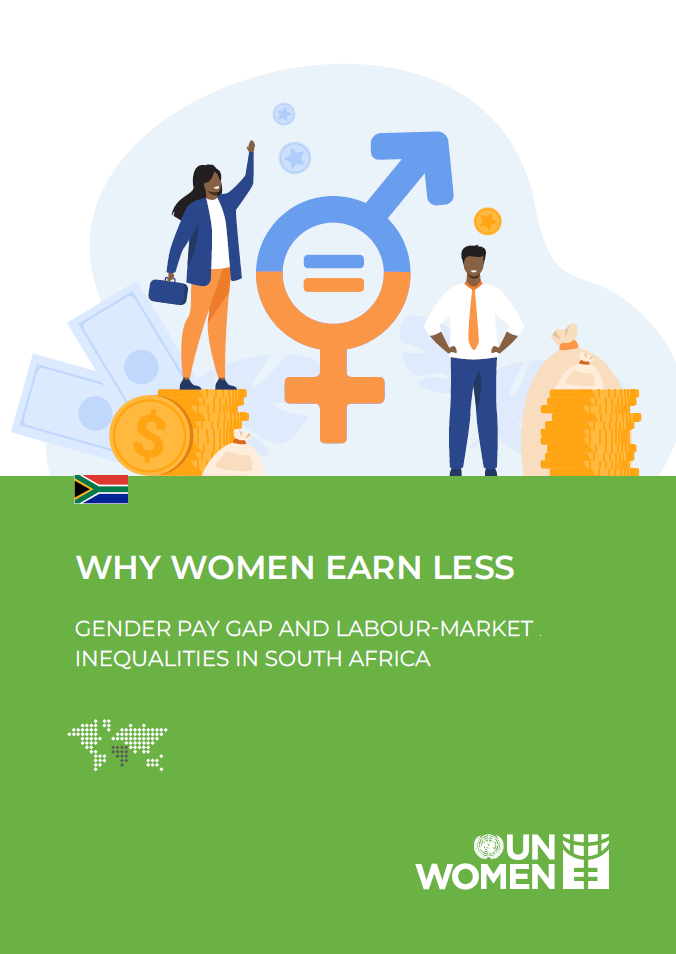
Gender Pay Gap and Labour Market Inequalities in South Africa

The objective of the present study is to present an overview of the adjusted gender pay gap and labour-market inequalities in South Africa. This is part of a larger 2023 UN Women study titled “Why Women Earn Less: Gender Pay Gap and Labour-Market Inequalities in East and Southern Africa.” We present both the country report and its brief of the findings and recommendations from the analysis. Understanding the gender pay gap and its determinants would raise awareness among employees, employers and policymakers; lead to actions for the mitigation of economic inequalities; support women in realizing their productive potential; and ultimately support economic growth. Therefore, the study contributes to achieving the Sustainable Development Goals (SDGs) for gender equality, within SDG 5, and for decent work and economic growth, within SDG 8. SDG 5 considers inequality more broadly than simply in terms of the gender pay gap: its ambition is to achieve gender equality in the labour market (e.g. equal access to jobs and top decision-making roles), in education (e.g. achieving gender parity in education), in access to health and in an array of other target areas, with the aims of reducing gender-based violence and discrimination, and empowering women and girls. SDG 8 also seeks to promote the collection and dissemination of sex disaggregated data on other labour-market indicators, including on employment, unemployment, informal employment and rates of those not in education, employment or training.